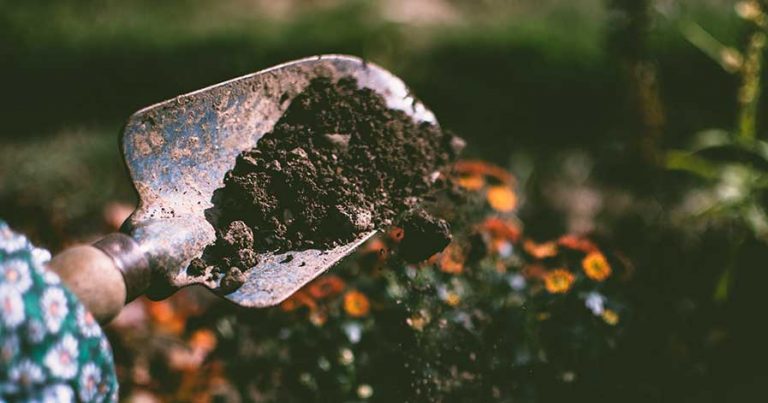How to Improve the Quality of the Soil in Your Garden
Could Your Soil be Lacking Nutrients?
If you're underwhelmed with the shrubs, flowers or vegetables in your garden even though you seem to be doing everything right (including garden pest control), soil contamination could be the problem. Soil pollution, pH imbalances and a lack of vital nutrients, including nitrogen, phosphorus and potassium, will significantly affect your gardening results.
Correcting a soil contamination problem is a three-part process. First, you'll need to perform an evaluation using a soil test kit. Then, you'll need to identify the exact source of the contamination or pinpoint the nutrients your soil lacks. Finally, you'll need to correct the problem through soil remediation.
Choosing and Using a Soil Test Kit
Visit your local garden center to find a soil test kit suitable for use in home gardens. While some products are designed to test for a specific deficiency or contaminant, you're best to choose soil testing equipment that will cover all your bases. Soil test kits that allow you to test for nitrogen, phosphorus, potassium, sulfur, salinity and pH levels all at once are generally affordable and easy to use.
You'll find exact instructions on your kit, but it's normally necessary to dig to a depth of more than 6 inches to obtain a suitable soil sample. Salinity levels and nitrogen deficiencies are most accurately diagnosed at depths beyond the 6-inch mark.
There are a few key facts to keep in mind when you perform a soil test:
- Soils range in pH level from 3.5 (highly acidic) to 9.5 (highly alkaline). The 6.5 to 7.5 range is considered neutral. Fertile, well-balanced soils should fall in the neutral range, though a slightly alkaline reading is also acceptable.
- Even moderately high salinity will negatively affect your plant growth. The deeper the soil depth that returns an undesirable salinity reading, the more growing pains your plants will exhibit. Thus, it's best to test several soil samples from varying depths.
- Late autumn and early spring are the best times of year to test for nitrogen levels. Any nitrogen reading less than 100 pounds per acre is considered unacceptable. Ideally, your nitrogen readings should be 150 pounds per acre or more.
- Phosphorus levels shouldn't fall below 80 pounds per acre. Anything less than 40 pounds per acre is considered deficient.
- Tests for potassium (or "potash") should also be performed on samples obtained from a depth of at least 6 inches. Potassium levels don't vary much throughout the year. You're looking for levels of at least 300 pounds per acre. 150 to 300 pounds per acre is marginally acceptable, and anything less than 150 pounds per acre will require intervention.
- Sulfur levels should read at least 50 pounds per acre. The amount of sulfur in the soil is only affected by extensive leaching as the result of extremely heavy, continual rainfall.
Soil Amendment
A soil amendment product improves your soil's ability to absorb water and nutrients. If you discover that your soil is lacking one or more important nutrients or isn't trapping enough water, you'll need to mix an organic or inorganic soil amendment product into the lower depths of your garden. Organic products are considered superior, though they're generally more expensive.
Organic soil amendments include sphagnum peat, wood chips, grass clippings, manure, compost, straw and biosolids, and the best one for you will depend on your particular soil problem. For instance, wood products can tie up nitrogen in the soil and lead to a nitrogen deficiency in your plants. Once you've determined which amendment will work for you, help get the work started: merely burying the substance in your existing soil won't do too much, so be sure to mix it thoroughly at a depth of at least 6 inches.
Another aspect to consider when choosing an amendment is how long you'll need it to work for. If you're trying to improve the soil very quickly, you'll need an amendment that decomposes rapidly. On the other hand, substances that decompose rapidly won't be too useful if you're looking for lasting improvement in your soil conditions. In some cases, a careful combination of amendments will allow you to achieve better soil quality fairly quickly that lasts a relatively long time, but this can be a difficult balance to strike without the expertise of a soil professional.
Don't confuse soil amendment products with mulch – the former must be mixed into the soil at a depth of at least 6 inches, while mulch is simply spread over the surface of the soil to help add nutrients and desirable properties to the uppermost soil layers.
Soil Remediation
Soil remediation is the process of correcting nutrient deficiencies or soil pollution. What you'll do depends on which nutrients you're missing and which contaminants are affecting your soil.
At the residential level, soil remediation is generally no more complicated than mixing nitrate compounds into soil that's lacking nitrogen, diluting soil that has too much salinity by adding properly balanced dirt, or using indicated supplements to correct potassium, phosphorus, sulfur or acidity problems.
To choose the right soil remediation product(s), you'll need two vital pieces of information: first, you'll need to have the readings you took with your soil test kit ready at hand. Second, you'll need to know the overall volume of the soil in your garden. This will enable you to remediate your soil by adding products and supplements of the correct proportion(s). Professionals at your local garden center will be happy to answer any questions you may have.

